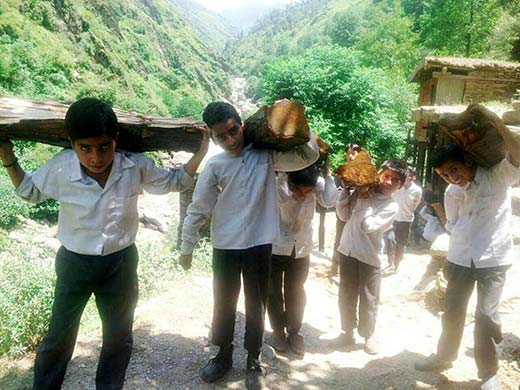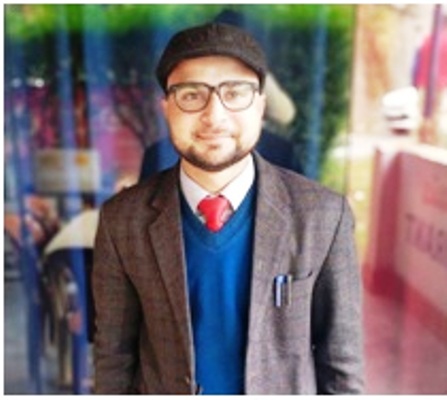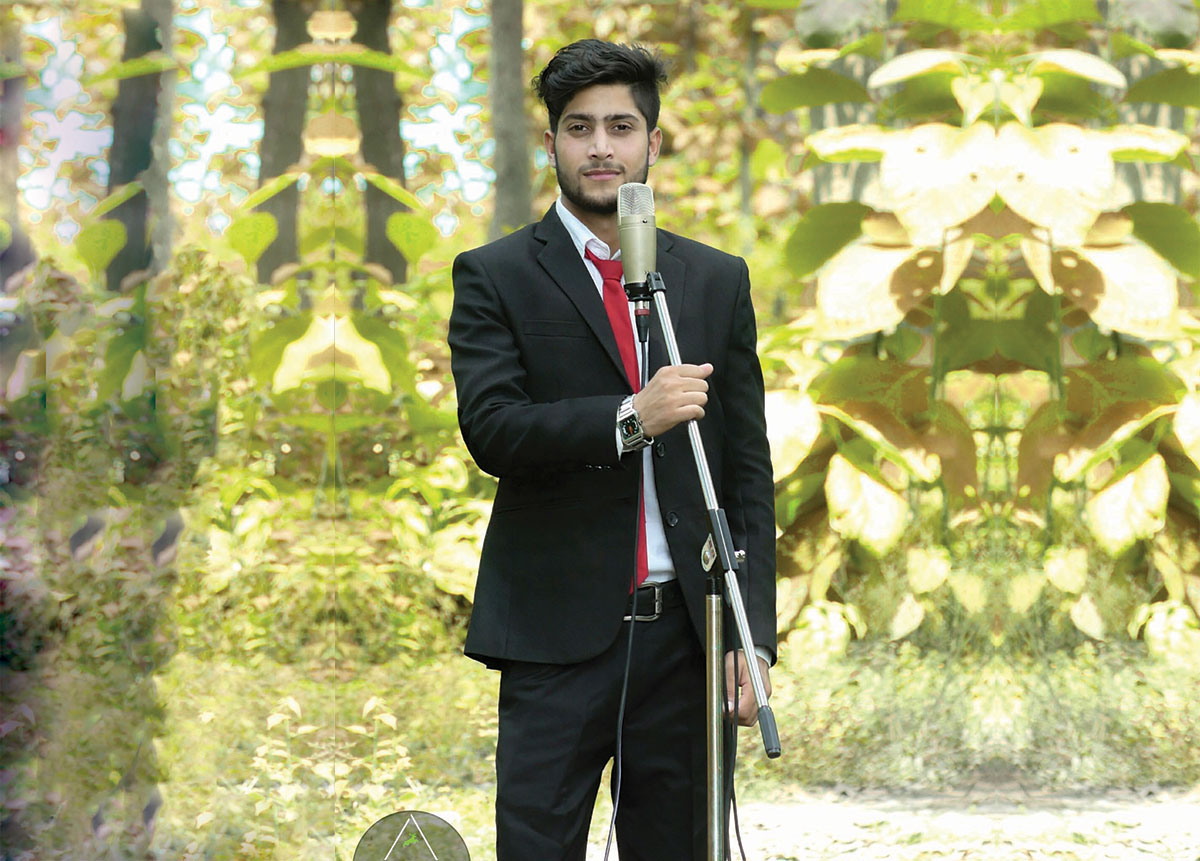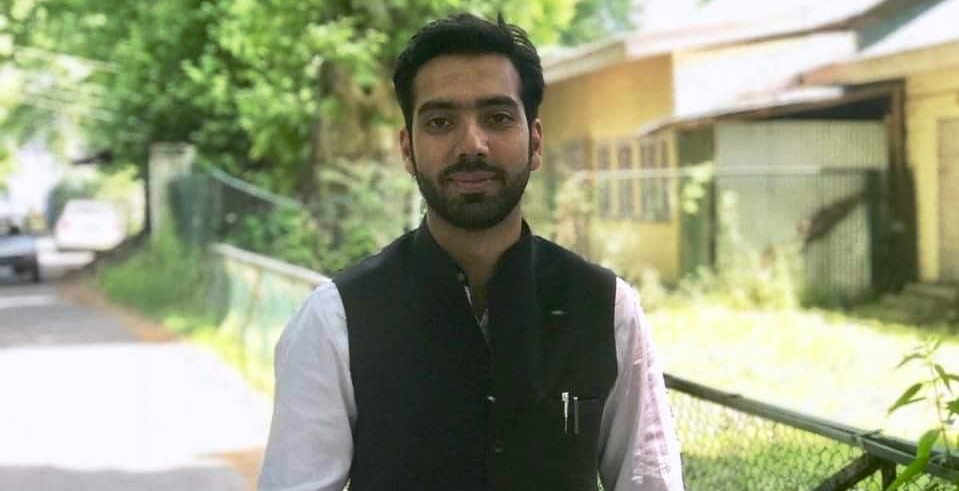In making individuals achieve their objectives, there are lots of people who contribute, especially in case of have-nots. But there are quite a few who remember the struggle and then credit the helpers once they become achievers. Muhammad Younis met one such non-resident Kashmiri whose roller coaster journey took him far away from a dusky village but not led him to forget his phenomenal struggle for a dignified living
![]()
Dr Rafiq Sheikh
Across the river Sacramento near 10 Lake Vista in California, where Dr Rafiq Sheikh lives currently, the view of a tree congested riverbank satiates his longing for his home in Kashmir. His dilapidated single room house which used to be situated on the bank of river Jhelum in Chersoo, a high way village, near Awantipora, shared almost a similar view.
Sheikh’s quantum jump from Chersoo to Lake Vista is a matter of fascination for the whole village. He is a role model. But what makes the story great is that Sheikh hasn’t forgotten anything, not even an iota, about the people who were instrumental in his struggle and success.
Born in late 60’s, Sheikh belonged to a family with marginal land-holding, barely 2 kanals. On this dependent was a 6-member family. Being the eldest son of the family, Sheikh’s shoulders got burdened at a tender age of 6, when his father, Reshi Sheikh, the sole bread earner of the family, died of some chest problem. In order to provide for his family, Sheikh “took up a sickle in his hand” and started farming. His little brother, Gul Sheikh, and sister, Zaeba, joined the school. His other two siblings Ghulam Muhammad and Jawhar were too little to join either of the two occupations.
Because of frequent bullying by the seniors at the local primary school, Gul almost dropped out. To request Abdul Rashid, Gul’s teacher, to look into the matter, Sheikh one day visited him. As it was the “fate that had brought him here”, Rashid insisted Sheikh join the class at that very moment. Sitting on a rug, under a Chinar tree, the students, crooning multiplication table, fascinated an eight-year-old Sheikh, but he found himself helpless to pursue his desire. He told the teacher that if he would sit in the class, there was no one in his family to bring straw for the cattle. “And they’ll have to starve… my family will have to starve,” Sheikh remembers telling his teacher. The teacher didn’t take no for an answer, and Sheikh had to spend a whole day in the class. “In the class, I was the eldest. The others were much younger to me.”
Back home, Sheikh said he was a whole different person now. In order to cajole his mother to allow him to go to school, he wept his eyes out. “Joining school meant to leave my mother take care of the family expenses singlehandedly,” he said. But she, taking the entire burden on herself, granted permission to her son. What she didn’t realise at that time was that her son “had embarked on a journey, whose ending she would have remotely conjectured.”
Lacking resources to buy textbooks, a neighbour helped Sheikh by writing him the lessons and the multiplication table on white pages that he bought from a neighbouring shop in exchange for a few eggs. His mother sold a chicken for Rs 4.50 to purchase his uniform. “The uniform was of substandard quality. My mother couldn’t afford a fresh one.”
From the inception, Sheikh proved a brilliant student. Because of his excellence in studies, he got multiple promotions, quickly. In the initial six months of his school, he was shifted from class Ist to 2nd. During an inspection of the school one day, Sharifuddin Andrabi, the then Tehsil Education Officer Awantipora, asked a question to fourth primary students about the founder of Jammu city. They could not answer. Only Sheikh, then in the second primary, replied that it was Babu Lochan. For answering this question, he earned a double promotion; from second to the fourth primary. “The teachers said that it was only because all the classes were conducted close and I might have heard the name and remembered it. Otherwise, I didn’t have books to learn from.”
In his middles (eighth) at the High School Noorpora Tral, Sheikh got the highest numbers in Arabic subject; 148 out of 150. And this was the reason that Sheikh’s Arabic teacher, Aajiz Ahmad compelled him to take the subject forward. He told Sheikh that there were huge prospects for him to do MA and then PhD in Arabic, and become eligible enough for a professor’s post. But, Sheikh, on the other hand, wanted to study medical science. And coincidence was that Jagdish Singh, a science teacher, after getting to know about Sheikh’s interest, dragged him in the science class.
“Both teachers had a verbal spat regarding the subjects I should take,” Sheikh remembers. Jagdish told Aajiz that if Sheikh would want to learn Arabic, he would provide him with the money to learn it from an Imam Sahib at home. But because he (Sheikh) was doing well in studies, and was interested in science, he should have to go for science in any case.
From the beginning, Sheikh had a deep interest in learning the English language, and he would always prefer to write his exams in the same. He took part in many debates at the school level, and unlike others, he would prefer to speak in English only. For a public speaking competition on Guru Nanak in the Degree College Islamabad, Sheikh was selected from Noorpora High School. Sheikh recalls that to prepare for the speech, he didn’t have any book. The school headmaster lent him one. “I didn’t sleep the night before the day of speech… and memorized my topic outside my home under the moonlight.”
The result of burning his midnight oil was that out of 15 students, from different schools, including Burnhall, Biscoe, Presentation Convent, Sheikh was able to grab the first position. “The rest of the students forgot the topic at certain places during the speech but I was able to maintain a smooth flow.”
Sheikh got Rs 450 award. He rued the timing of the honour. A month back, he could not join an all India tour that required Rs 250. “The poverty of my family was the reason that I missed out on many things, one of them was this tour.”
In 1970, Sheikh passed his matriculation with a first division. Now the problem that cropped up for him was whether to go to college or start earning for his family. One of the teachers at home, Alai Sahib, suggested the latter and asked him to do some job. He wrote Sheikh a recommendation letter to Director Health Services. “Alai sahib said that the lady was very humane, and after knowing about the situation at my home, for sure, would help me out with some job,” Sheikh remembers. Coming out of Alai Sahib’s house, Sheikh ran into Abdul Rashid, the teacher who had compelled him to join the school. After being acquainted with the letter, he lost his cool and tore the letter into pieces. The reason was that Rashid believed in the other, and not wanting him to leave studies midway, advised him to join college.
The nearest college was at Islamabad, 25 km away. But the daily bus fare was unaffordable, or the rent Sheikh could pay for a room. Another “divinely help” knocked the door during a Jammat-e-Islami symposium at Tral regarding monotheism. People with scholarly backgrounds spoke on the subject. Sheikh, a zilch in comparison, couldn’t say no to his teacher Aajiz, who forced him to speak up whatever he knew about the topic. “And I compensated my limited knowledge with my English deliverance and it impressed the people around.”
One of the impressed ones happened to be Ghulam Rasool Shah, the then district secretary of the party. He eventually provided Sheikh rent-free lodging for two years in Islamabad. “Almost everyone that I got to meet in my life seemed to be preordained.”
In the eleventh standard, for some problem, Sheikh’s English paper got delayed for three months. He returned home to grasp at straws during the period for improving the financial condition of his family. Then, black-topping of the highway, cutting through his village, was taking place, and all the village boys were working as labourers. He also wanted to join but his mother resisted. “She did not want to see my face blackened with smoke and tar.”
In that crisis, Sheikh’s English teacher, Ali Muhammad Peerzada, helped him. He provided Sheikh with a leave chance job as a teacher at Khokhribal Khrew. From Pampore, it was a distance of 6 km uphill. “On the first day, I had to travel up the mountain from 10 am to 4 pm to reach the particular spot,” Sheikh remembers.
When Sheikh completed his higher secondary, he started preparing for MBBS entrance. But he faced space constraints. A single room and kitchen was the entire space that he called home and there were many others in the family. He moved out to live on the roof of a wooden grain store of his neighbour. He spent two bitter months of winter, shivering there. During days, nature was “gracious enough”, but during nights, he had to spend money to light up a paraffin lamp to study.
For the entrance, it took Sheikh some time to arrange the amount to submit the form. The last date for submission was barely three days away when he was ready. To Sheikh’s dismay, it rained for two consecutive days and it inundated the entire belt. But he had to reach Srinagar and submit his form. Sheikh remembers how he covered up his form in a polythene sheet, and waded through the flood water from his village up to Awantipora, a distance of three kilometres, and then from there, boarded a vehicle to Srinagar. When he met the clerk at the college, he got to know that the dates had already been extended. But the clerk still took his form. And when the exams were finally conducted, Sheikh was “lucky enough” to pass it with good numbers.
The day a tired Sheikh returned home after submitting his form, there was nothing to eat at his home. Floods had ruined everything. Evincing her inner feelings, his mother told him that if he would join the college, she was afraid the family might have to suffer. But Sheikh had his plans. From day one till he graduated, Sheikh received a merit scholarship of Rs 1200 and Rs 1400 as a government loan. This helped him study and run his home.
In the Medical College, Dr Abdul Hamid Band from Sheikh’s neighbouring K Koot village, a gold medallist, was of great help and influence to him. During the course of his study, all the books Sheikh needed were provided by him. “Now he is a scientist in America.” Dr Abdul Hamid Malik, from Yaripora Kulgam, who is now a medical doctor at Saudi Arabia, would provide him books on his name from the library.
One day in Medical College, a symposium was conducted regarding diabetes and thyroid diseases, in which, a British expert Professor Hall was invited. During the interaction with the faculty and students of the college, when Hall asked them if anybody had any question, Sheikh posed many queries which impressed Hall. “The luck was that the research Professor Hall was talking about I had read from a journal that Dr Hamid had given me a week before,” Sheikh remembers. “After the session was over, Hall asked me that if I wanted to be an endocrinologist. I told him, yes, but honestly speaking I didn’t know even the basics of the subject because I was in the second year.”
![]()
Dr Rafiq Sheikh
Knowing that Sheikh was a student and not a faculty member, Professor Hall told him that after graduation the latter could call him or write to him, and the Professor would be delighted to have him in his department.
Sheikh completed his MBBS and then did his MD. After post-graduation, he was posted at District Hospital in Doda. For nine months he worked there. After his return, he worked at SMHS hospital Srinagar till 1981 as a registrar with a pay of Rs 1144 only. “It was hard to make ends meet with this amount because apart from my family I had also got married now.” In 1985, Sheikh applied for registrar post at Sher Kashmir Institute of Medical Sciences (SKIMS) and “luckily” was successful. The starting pay for a registrar post here was Rs 3200 and a rent-free apartment which was a lot better than SMHS.
At SKIMS, Sheikh would always find Mushtaq Ahmad Khan, a lecturer, studying in the library of the Institute. Mushtaq was preparing for an exam which if he had qualified might have earned him a chance to go to England. Here is where Sheikh recalled Professor Hall’s advice in 1974. The desire to go to the UK aroused in him. After getting Professor’s address from the recent books he had written, Sheikh wrote him a letter, not sure whether it would be responded. As a decade had gone by, he thought the English professor might have forgotten him. But three months later, Sheikh’s presumption proved incorrect, and he did receive a reply. “Professor had been transferred from New Castle University Pennsylvania, the address to which my letter was dispatched, to University of Wales… that is why he was late to reply… but he was a lot sorry about it.”
Professor told Sheikh to apply for scholarships as there was a dearth of funds. Sheikh applied at many organisations: Indian Medical Counsel, World Health Organisation Geneva, British Medical foundation, Kashmir Alumina in America, World Islamic Bank, and many more but nowhere he could strike gold.
One day, Dr Afzal Mir, a senior lecturer from the University of Wales came to the SKIMS. He was a Kashmir, who had left for Pakistan and from there to England. During his lecture, he mentioned the work he had done with Professor Hall. Lecture over, Sheikh met Mir and narrated him the whole correspondence he had had with Professor Hall. Dr Mir enquired Sheikh about any of his research. Sheikh had done one on diabetes: Effect of Bran fibre and glucose Absorption. “Dr Mir told me that the research was indeed a product of hard work, but according to English standards it needed a lot more work.” Nevertheless, Mir took the research paper with him to convince Professor Hall. And finally, Sheikh was invited. Dec 18, 1989, was the day of Sheikh’s departure from the valley; a maiden overseas trip.
“Some stereotypes of mine that I had nursed broke here,” Sheikh admitted with a smile. “A punk girl, with multicoloured hair, who was smoking outside the airport station, helped me to reach my destination. People back home used to say we should be a lot cautious while meeting such people.”
At Wales, Sheikh did research with Hall for a year. Then he took off: he was registrar at Sheffield University; Rotational Registrar Internal Medicine, Endocrinology and Rheumatology, Doncaster Royal Infirmary, Yorkshire UK; Rotational Registrar Internal medicine, Nephrology, Neurology, Geriatrics and Pulmonology, King George and Barking Hospitals, London UK; Chief Medical Resident, Lankenau Hospital (Thomas Jefferson University) Internal Medicine Residency Program.
Later, Sheikh came to America. Here again, he worked on different posts: Clinical Assistant Professor of Medicine University of California Davis (Volunteer Faculty) Division of Gastroenterology; San Joaquin General Hospital, Stockton; Consultant Gastroenterologist; Kaiser Permanente Medical Center, Sacramento. Presently he is Consultant Gastroenterologist Dignity Health, Woodland Memorial Hospital, Woodland.
During all these years, Sheikh received many awards. By now, a couple of dozens of researches are to his credit. He is also an associate editor-in-chief of World Journal of Gastroenterology.
Drawing comparisons between the health system in the west and in Kashmir, Sheikh is of the belief that physicians there are by and large responsible. Moreover, he said, there is accountability. “You get paid for the work you do. If you are culprit of any sort of fraud, law doesn’t spare you… human life is valued… government resources and charity resources are there for poor. Medical education is sound, thorough and ethical. Overall the greed among the doctors is less.”
“Fully connected” with his roots, Sheikh said, he had never given up his farming. “Near my residence at 10 Lake Vista CT, Sacramento I grow almost every kind of Kashmiri vegetables.” Vaste Haakh he particularly mentioned. “We still consume handmade Chapattis… Makai Choet is my favourite.”
Being the first to move out of his village, Sheikh has acted as a torch bearer for others. There are many persons who followed his suit, and are working at different places of the world. His own sister, Jawhar, married to one of the relatives, is living in New Zealand. Bashir Ahmad, her husband, guided by Sheikh is a microbiology scientist there.





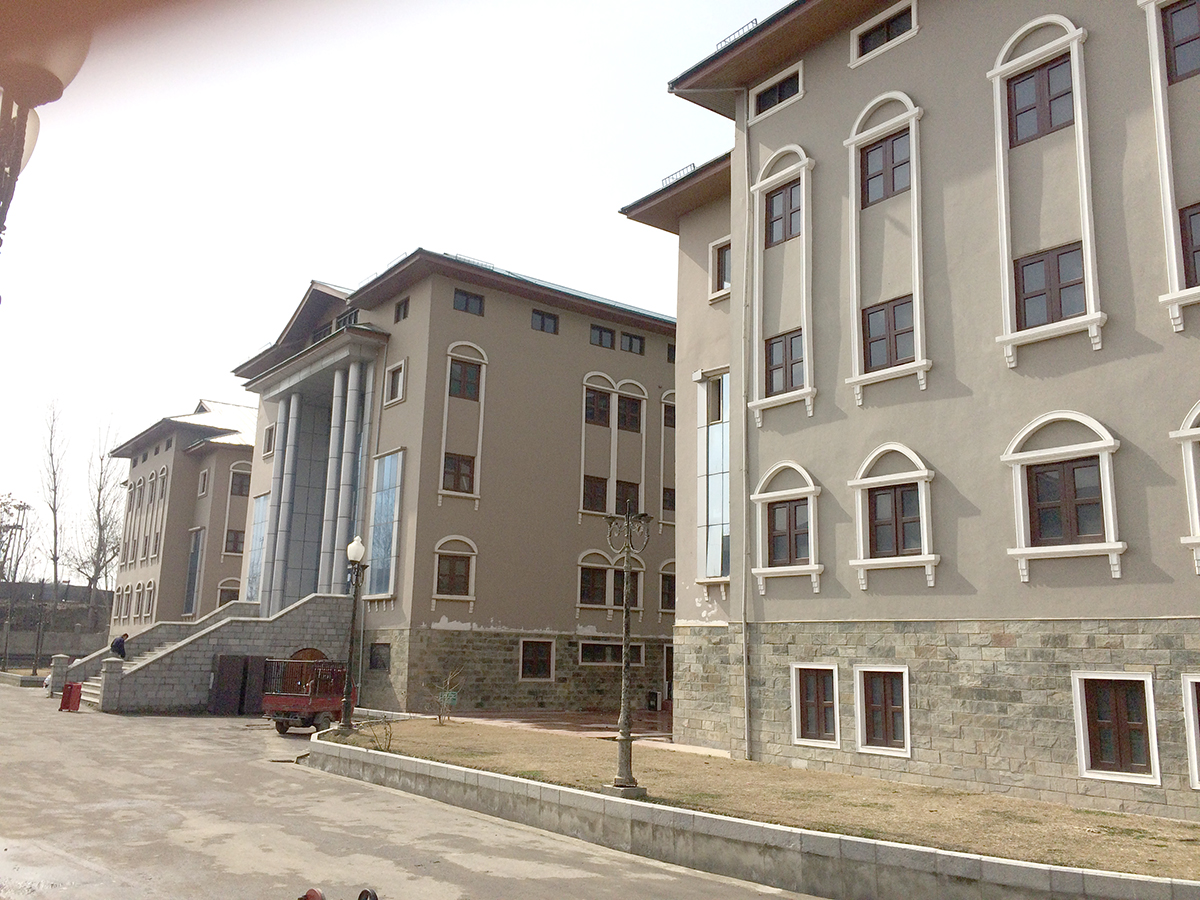


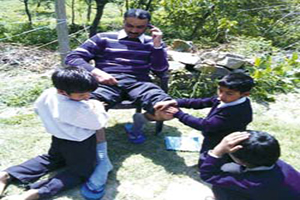
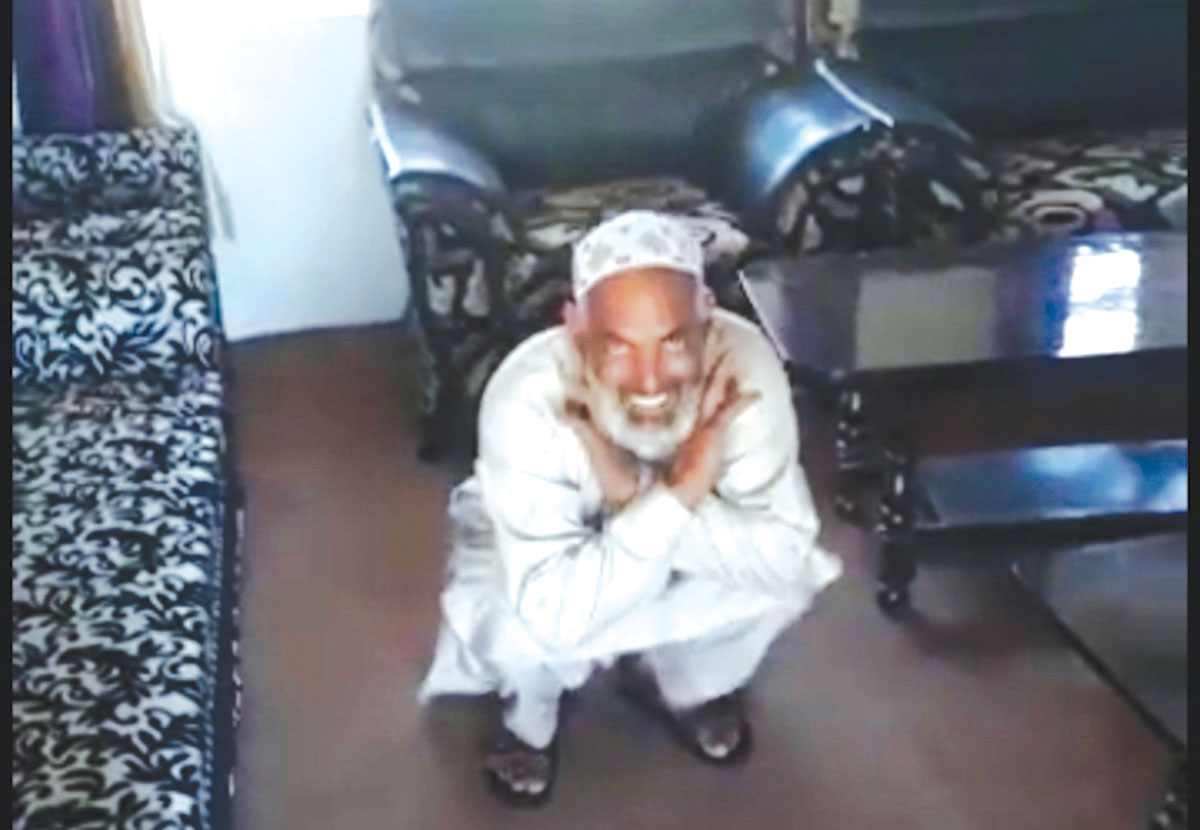 Having said that, I also wish to express that teaching, as a profession is nothing but a process of constant learning. Learning in the classrooms and outside the classrooms.
Having said that, I also wish to express that teaching, as a profession is nothing but a process of constant learning. Learning in the classrooms and outside the classrooms.